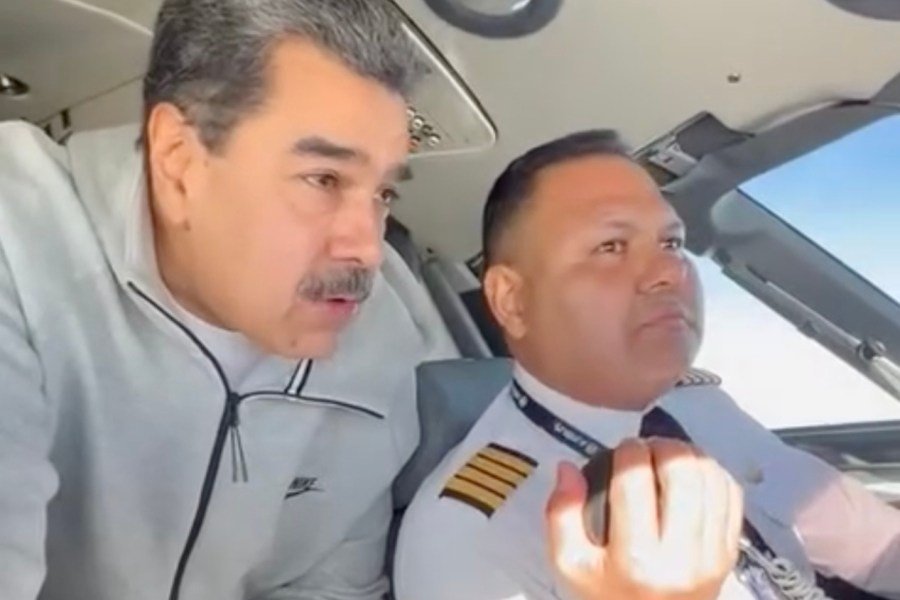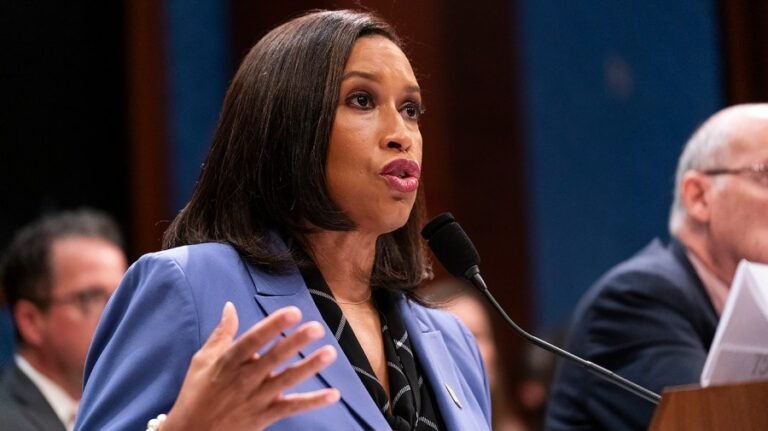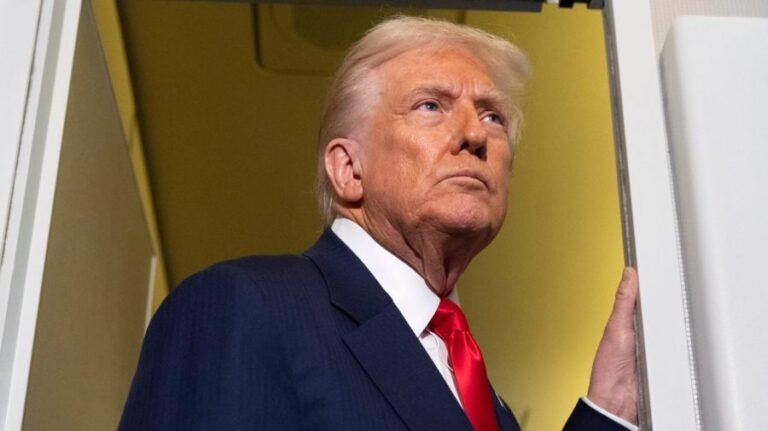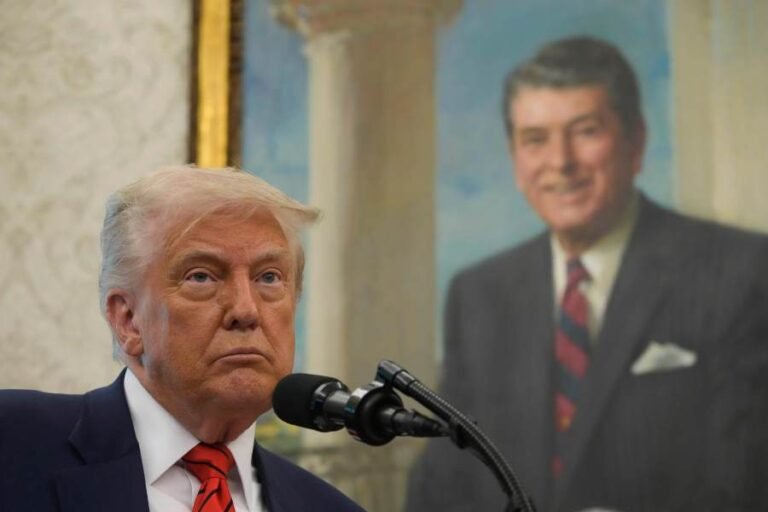
Sixty-three years later, a new Cuban Missile Crisis is in the making. Team Trump is building up a vast array of military forces in the Caribbean.
Significantly, more than 10 percent of the U.S. naval fleet is either already on station or, as with the U.S.S. Gerald Ford strike group and U.S.S. Gravely guided-missile destroyer, headed toward the region. In terms of scale, that is akin to Washington’s stationing of U.S. forces to defend Israel against Iranian ballistic missile and drone attacks earlier this year.
It is also SOUTHCOM’s largest buildup in the region since President John F. Kennedy ordered a blockade of Cuba in response to the Soviet Union building nuclear missile silos there.
Team Trump, for now, is largely positioning this as a domestic response to drug cartels — particularly the Venezuela-based Tren de Aragua transnational crime syndicate — trafficking illegal drugs into the U.S. But in reality, this is much bigger.
President Trump, during his first administration, adopted a maximum pressure campaign against Venezuela’s Nicolás Maduro after he declared himself the winner in the 2018 presidential election that was boycotted by the opposition due to “systemic election violations.” Washington refused to recognize Maduro’s reelection.
Instead, in January 2019, Trump and 50 other nations recognized Juan Guaidó as the winner and acting president of Venezuela. In response, Madura severed diplomatic ties with the U.S.
Hugo Chávez, Maduro’s leftist predecessor, had begun to align his country with Moscow, Beijing and Tehran as early as 2005. Now, the rupture with the U.S. was complete.
The Axis of Evil had found its modern-day South American upstart first in Chávez and then in Maduro. Russian President Vladimir Putin sealed a deal with Chávez in 2006 to sell combat planes and helicopters to Venezuela.
By late 2009, Chávez had secured a “$2.2 billion line of credit for Venezuela to purchase [Russian] weapons including armored vehicles and surface-to-air missiles.” For all of Putin’s recent complaints against NATO member-states arming Ukraine, the Kremlin — 17 years ago — was arming Venezuela to counter neighboring Colombia’s decision “to give U.S. troops greater access to its military bases.”
During that same timeframe, Chávez solidified economic ties with China. Beginning in 2006, he signed multiple trade agreements with Beijing and referred to them as a “Great Wall” protecting Venezuela from “American hegemonism.” By then, Chávez was openly calling President George W. Bush “the devil” and was establishing Venezuela alongside Iran, Syria and North Korea as junior members of the Axis of Evil.
Chinese purchases of Venezuelan oil proved decisive in letting Maduro skirt past U.S. oil sanctions aimed at ending his regime. Likewise, it gave oil-hungry Beijing another source of oil imports.
Fast-forward to March 2022. Putin’s armies had invaded Ukraine. Iranian Supreme Leader Ayatollah Ali Khamenei was putting his finishing touches on his Axis of Resistance — Hamas, Hezbollah, and the Houthis in Yemen. North Korean leader Kim Jong-un was test-firing an unprecedented number of nuclear-capable ballistic missiles over Japanese territory.
The permissive environment that President Joe Biden had created was backfiring on him. He was looking for wins. Fearing spikes in global oil prices, Biden abandoned Trump’s maximum pressure approach against Caracas and naively sought to peel off Maduro from the anti-Western axis.
Predictably, Maduro took everything he could from Biden and then stiffed him. Despite U.S. energy sanctions relief, Maduro continued to ban Maria Corina Machado (winner of this year’s Nobel Peace Prize) as a presidential candidate. By July 2024 the Venezuelan dictator was even threatening to militarily seize Essequibo, a province of Guyana where U.S.-based Exxon has invested billions.
As Elliot Abrams noted, President Biden last year nonetheless “gave oxygen to the Maduro regime.” Ironically, it took a fellow leftist government in Brazil to keep Caracas in check — it vetoed Venezuela’s bid to join BRICS after Maduro’s flagrant theft of the 2024 election from winner Edmundo González.
That was then. This is now. Trump’s maximum pressure campaign against Maduro is back, and this time, he is casting a wider net. The Pentagon’s show of force is also squarely aimed at Moscow and Beijing — an assertion of a modern Monroe Doctrine.
The White House’s messaging to the Axis of Evil is as simple as it is blunt: hands off of the Western Hemisphere. As we noted last January, Trump began sending that message to Putin and Chinese President Xi Jinping when he refused to rule out military force in Greenland or the Panama Canal.
So far, neither Putin nor Xi appear willing to accept the message. Significantly, over the weekend, a Russian cargo plane linked in the past to the Wagner Group and other Russian paramilitary companies landed in Caracas. In the past, these planes have been used to ship “rockets, warheads, and helicopter parts globally.”
Notably, the cargo plane took a circuitous route from Moscow to Caracas “via Armenia, Algeria, Morocco, Senegal and Mauritania to Latin America.” Although its contents remain unknown, Putin’s messaging to Trump is obvious. He is willing to bring his global war against the West to the Americas.
Beijing is also weighing in on Trump’s buildup in the Caribbean. Mao Ning, a Chinese Foreign Ministry spokesman, said last week that “China opposes any move that violates the purposes and principles of the UN Charter and a country’s sovereignty and security. We oppose the use or threat of force in international relations and the interference of external forces in Venezuela’s internal affairs under any pretext.”
No doubt Japan, Taiwan and the Philippines wish China would live up to Ning’s laughably hollow statement and stop encroaching on their waters while maneuvering against Taipei.
Nonetheless, Team Trump can book a win here. Putin and Xi have taken notice and are at a loss as to how best to counter Washington. Maduro will likely lose. World War III is here, and although it is all getting too close to home, the U.S. seems to be winning.
Mark Toth writes on national security and foreign policy. Col. (Ret.) Jonathan Sweet served 30 years as a military intelligence officer and led the U.S. European Command Intelligence Engagement Division from 2012 to 2014.


